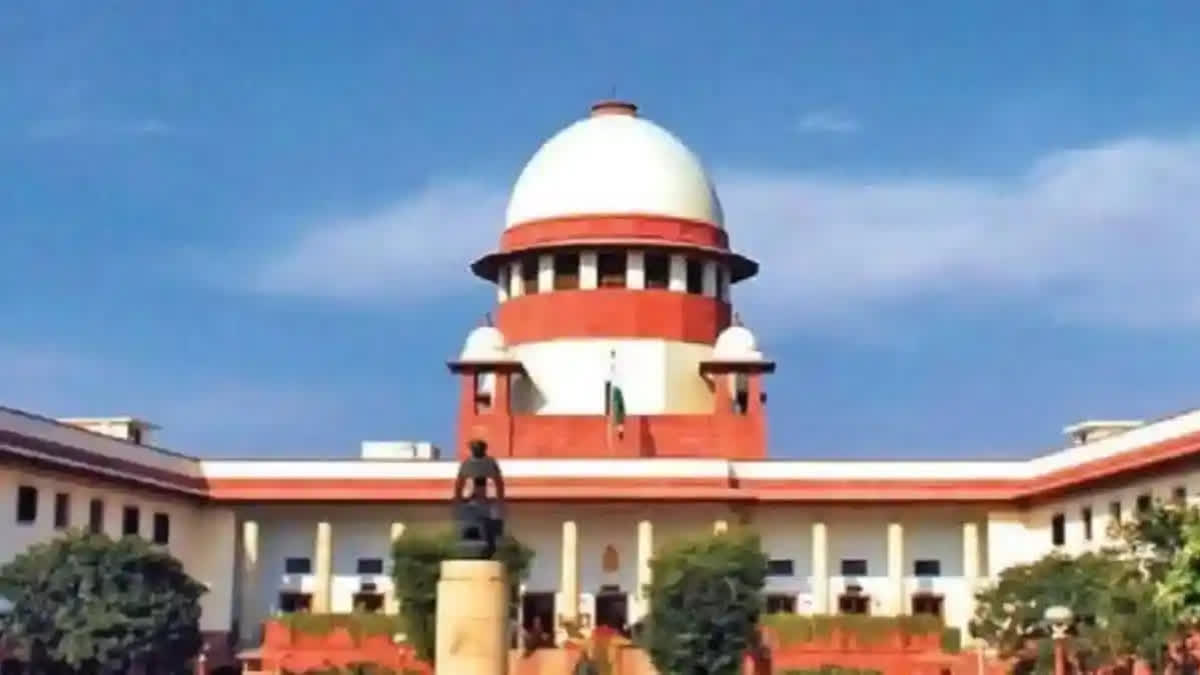New Delhi: The Supreme Court has said that the district judiciary and the High Courts should not employ concepts such as “liberal approach”, “Justice oriented approach”, or “substantial justice”, to frustrate or jettison the substantial law of limitation, and emphasised that the rules of limitation are not meant to destroy the rights of parties.
A bench comprising justices JB Pardiwala and R Mahadevan said, “The rules of limitation are not meant to destroy the rights of parties. They are meant to see that the parties do not resort to dilatory tactics, but seek their remedy promptly”.
The bench emphasised that time and again, the Supreme Court has reminded the district judiciary as well the High Courts that concepts such as “liberal approach”, “Justice oriented approach”, and “substantial justice” should not be employed to frustrate or jettison the substantial law of limitation.
The bench said the length of the delay is definitely a relevant matter, which the court must take into consideration while considering whether the delay should be condoned or not.
The bench said the court owes a duty to first ascertain the bona fides of the explanation offered by the party seeking condonation. The bench said it is only if the sufficient cause assigned by the litigant and the opposition of the other side is equally balanced that the court may bring into aid the merits of the matter to condone the delay.
The bench said the question of limitation is not merely a technical consideration. “The rules of limitation are based on the principles of sound public policy and principles of equity. No court should keep the ‘Sword of Damocles’ hanging over the head of a litigant for an indefinite period”, said the bench.
The apex court made these observations while setting aside an order passed by the Karnataka High Court, in January 2020. The High Court had set aside an order by an additional City Civil Judge, Bengaluru, which rejected a plea for over six years of delay in filing the recall application in respect of a property.
The apex court, in a judgment passed on January 8, said it is constrained to observe that the High Court has exhibited a complete absence of judicial conscience and restraints, which a judge is expected to maintain while adjudicating a matter between the parties.
During the hearing, senior advocate Anand Sanjay M Nuli, representing the appellant H Guruswamy and others, had argued that the High Court proceeded to condone the delay of about 2,200 days without adverting to any of the reasons assigned by the trial court while rejecting the application filed for recall.
Nuli submitted that the High Court by its impugned order could be said to have proceeded to revive a suit which had been instituted in the year 1977 i.e., a suit which had been instituted about 48 years ago and is still at the stage of leading evidence.
Senior advocate Rajesh Mahale, representing the respondents, argued that no error not to speak of any error of law could be said to have been committed by the High Court in passing the impugned order. “He would submit that all that the High Court has done is to condone the delay to do substantial justice between the parties”, the apex court noted in its order.
The apex court said from the tenor of the approach of the respondents, that it appears that they want to fix their own period of limitation for the purpose of instituting the proceedings for which the law has prescribed a period of limitation.
“Once it is held that a party has lost his right to have the matter considered on merits because of his inaction for a long, it cannot be presumed to be a non-deliberate delay and in such circumstances of the case, he cannot be heard to plead that the substantial justice deserves to be preferred as against the technical considerations”, said the apex court.
The bench said while considering the plea for condonation of delay, the court must not start with the merits of the main matter. The bench said it is at its wit's end to understand why the high court overlooked all crucial aspects involved in the matter, and what was the good reason for the high court to ignore all this.
Read more: SC: Unfair To Deny Maintenance To Estranged Wife Who Refuses To Cohabit With Husband



